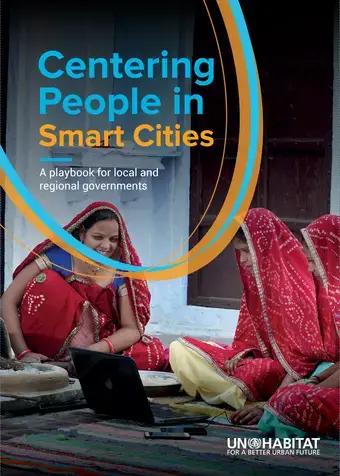
Country Profile
The Arab Republic of Egypt is developing fourth generation of urban communities– transforming existing cities into smart cities.
Some of the urban issues in Egypt include:
The Arab Republic of Egypt’s National Urban Policy document was been approved by the Cabinet in September 2023 for implementation. The government and development agencies have shown positive support through additional funding for two more outputs, allowing for the advancement of smart solutions in urban management, aligning with the National Urban Agenda’s top priorities: Smart solution for urban management and services. Additionally, MOLIT is supporting Badr Smart City Project in the Arab Republic of Egypt as a K-City Network Projects.
OUR WORK
National Urban Policy (NUP) is a coherent set of decisions via government led actors that coordinates various actors towards a common goal and vision for long term, resilient urban development.
UN-Habitat continues collaborating with Ministry of Land, Infrastructure and Transport (MOLIT) of Republic of Korea in supporting development of National Urban Policies (NUP):
UN-Habitat’s People-Centered Smart Cities Approach (PSCA) promotes deployment of technology and innovation to ensure sustainability, inclusivity, prosperity and human rights in cities By creating a framework that centers people in smart city development, the delivery of policies and programmes can be more inclusive and responsive to their needs.
Korea-funded NUPP seeks to integrate PSCA into NUP to promote and achieve transformative, inclusive, green, productive and resilient urban development.
objective
This programme aims at promoting a people-centered smart cities approach through National Urban Policies to ensure the increased focus on mainstreaming sustainable and inclusive digital transition in high level political forums on urban policy sensitive and people-centred smart cities in the Kingdom of Cambodia
Project document
Project Title |
National Urban Policy Programme, Phase Two: Scaling Up People-centered Smart Cities through National Urban Policy |
|---|---|
| Country | Arab Republic of Egypt |
| Overall Objective | To promote a people-centered smart cities approach through National Urban Policies in Badr Smart City Project, Egypt |
| Key Ministry | Ministry of Housing, Utilities and Urban Communities |
| Internal Stakeholders | Lead organizational Unit: Policy, Legislation and Governance Section
Implementation Unit: Egypt Country Office with the support from HQ Project Team Collaborating Units: Urban Practices Branch, Global Solutions Division/ External Relations, Strategy, Knowledge and Innovation Division, Programme Development Branch, HQ/ Regional Office for Africa, other Regional Offices (ROAP, ROAS and ROLAC) |
| External Stakeholders | MOLIT of the Republic of Korea
Ministry of Housing, Utilities and New Urban Communities, Ministry of Local Development, Ministry of Planning and Economic Development, and 16 Governorates (Sub-national level) of the Arab Republic of Egypt Civil Society Organizations, Academia and research centres, Youth and Women groups, Media |
| Country Contact | Duk Hwan Son: Senior Programme Officer, UN-Habitat (duk.son@un.org)
Amr Lashin: Program Manager, Egypt Country Office, Regional Office for Arab States(amr.lashin@un.org) |
| Major Outputs | NUP Implementation, monitoring and evaluation framework on the sub-national level and Scaling Up People-centered Smart Cities through National Urban Policy.
Three (3) acupuncture projects with six (6) activities, two of which will be directly implemented, supervised, and evaluated by the government of Egypt |
| Budget | USD284,000 |
| Duration | November 2022 – October 2026 (48 months) |


